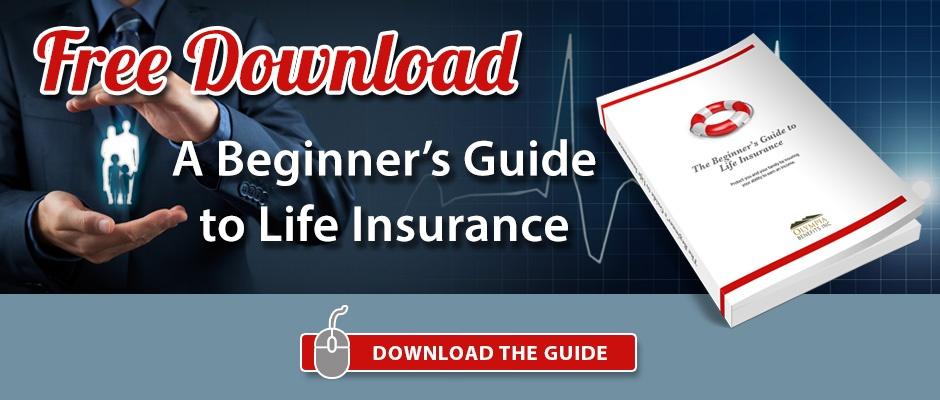A life insurance policy is a contract with an insurance company.
In exchange for premium payments, the insurance company provides a lump-sum payment, known as a death benefit, to beneficiaries upon the insured's death.
Typically, life insurance is chosen based on the needs and goals of the owner. Term life insurance generally provides protection for a set period of time, while permanent insurance, such as whole and universal life, provides lifetime coverage. It's important to note that death benefits from all types of life insurance are generally income tax-free.
There are several varieties of life insurance; the more common types are discussed below.
Term life insurance
Term life insurance is designed to provide financial protection for a specific period of time, such as 10 or 20 years. With traditional term insurance, the premium payment amount stays the same for the coverage period you select. After that period, policies may offer continued coverage, usually at a substantially higher premium payment rate. Term life insurance is generally less expensive than permanent life insurance.
Needs it helps meet: Term life insurance proceeds can be used to replace lost potential income during working years. This can provide a safety net for your beneficiaries and can also help ensure the family's financial goals will still be met: goals like paying off a mortgage, keeping a business running, and paying for college.
It's important to note that, although term life can be used to replace lost potential income, life insurance benefits are paid at one time in a lump sum, not in regular payments like paychecks.
Universal life insurance
Universal life insurance is a type of permanent life insurance designed to provide lifetime coverage. Unlike whole life insurance, universal life insurance policies are flexible and may allow you to raise or lower your premium payment or coverage amounts throughout your lifetime. Additionally, due to its lifetime coverage, universal life typically has higher premium payments than term.
Needs it helps meet: Universal life insurance is most often used as part of a flexible estate planning strategy to help preserve wealth to be transferred to beneficiaries. Another common use is long term income replacement, where the need extends beyond working years. Some universal life insurance product designs focus on providing both death benefit coverage and building cash value while others focus on providing guaranteed death benefit coverage.
Whole life insurance
Whole life insurance is a type of permanent life insurance designed to provide lifetime coverage. Because of the lifetime coverage period, whole life usually has higher premium payments than term life. Policy premium payments are typically fixed, and, unlike term, whole life has a cash value, which functions as a savings component and may accumulate tax, deferred over time.
Needs it helps meet: Whole life can be used as an estate planning tool to help preserve the wealth you plan to transfer to your beneficiaries.
Now that we have identified the most common types of life insurance, let's turn our attention to the subject of why you need it. There are several reasons why life insurance for Canadian small business owners is important:
1. To Pay Final Expenses
The cost of a funeral and burial can easily run into the tens of thousands of dollars, and you won't want your spouse, parents, or children to suffer financially in addition to emotionally at your death.
2. To Cover Children’s Expenses
Like most parents, you will want to be sure that your kids are well taken care of and can afford a quality college education. For this reason, additional coverage is absolutely essential while your kids are still at home or are in the midst of attending university.
3. To Replace the Spouse’s Income
If your spouse passes away while your kids were young, you may need to replace their income, which is likely essential to your lifestyle. You may also need to hire help for domestic tasks you would have shared like cleaning the house, laundry, cooking, helping with schoolwork, and carting kids to doctor’s visits.
4. To Pay Off Debts
In addition to providing income to cover every day living expenses, your family may need insurance to cover debts like the mortgage so they won't have to sell the house.
5. To Buy a Business Partner’s Shares
If you're involved in a business partnership, you may need insurance on your business partner’s life. In this case, if this person dies, you will have enough cash to buy their interest from their family and pay this person's share of the company’s obligations without having to sell the company itself. In addition, these funds will permit for the hiring of another individual to replace the partner's skill set, as required.
6. To Pay Off Estate Taxes
Taxes accruing to a person's estate, such as capital gains tax, can be steep, so having insurance in place to pay them is essential to avoid jeopardizing assets or funds built for retirement. Use of insurance for this purpose is most common for large estates, and uses permanent (rather than term) insurance to ensure that coverage remains until the end of life.
Interested in learning more about Life Insurance and how it can protect your family? Download our free ebook: The Beginner's Guide to Life Insurance.







